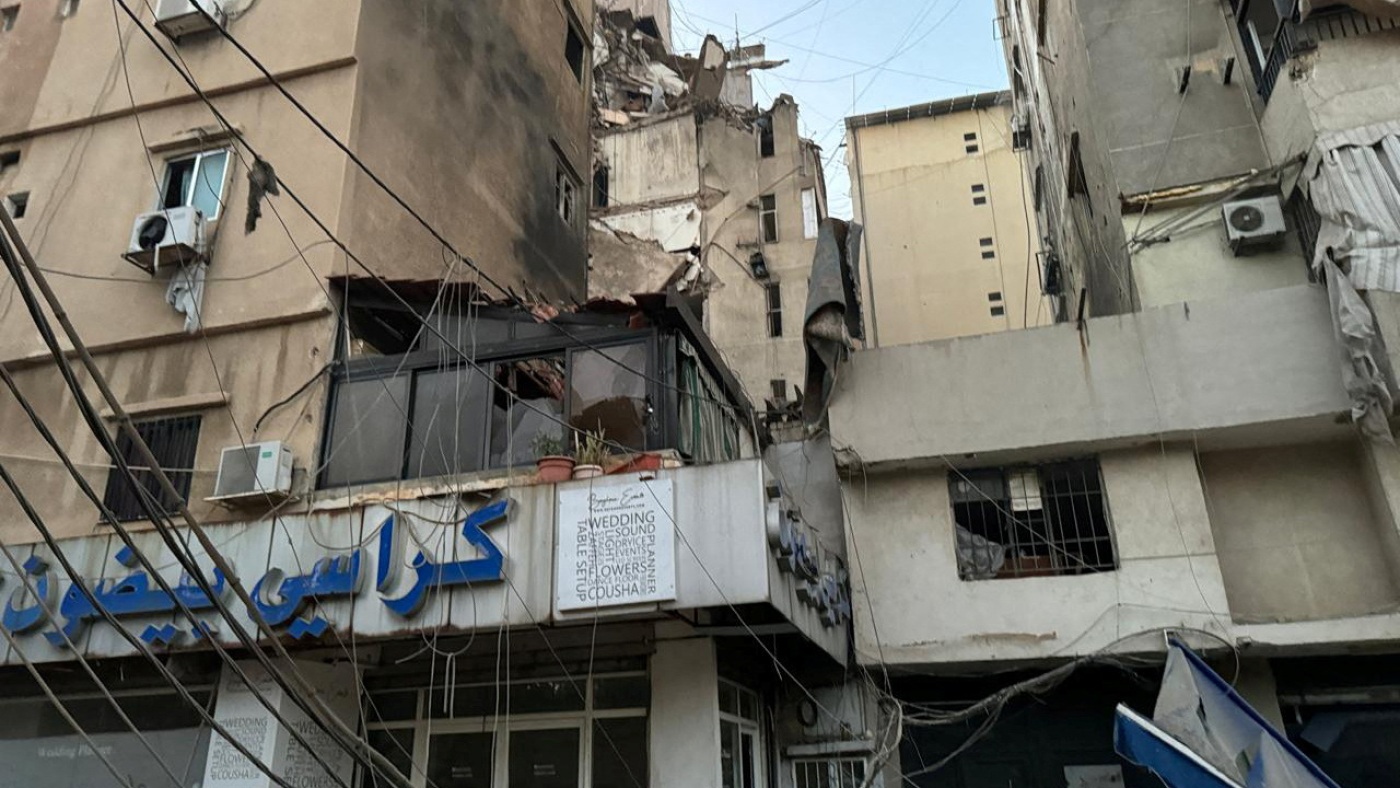- Israeli airstrikes in Beirut killed senior Hezbollah commanders, including Ibrahim Aqil and Ahmed Wahbi, members of Hezbollah’s elite Radwan unit (Cnn.com).
- The strikes targeted a meeting of Hezbollah commanders in southern Beirut, killing 16 members of the group, as confirmed by the IDF (Jpost.com).
- Hezbollah responded with rocket barrages targeting Israeli military positions in northern Israel, leading to fires and some property damage (Foxnews.com).
- The conflict has caused mass evacuations on both sides of the Lebanon-Israel border, with Israeli forces repositioning to the northern front (Apnews.com).
- Hezbollah's leadership vowed retaliation for the recent Israeli strikes, further escalating tensions in the region (Ndtv.com).
From Israel's standpoint, the airstrikes targeting Hezbollah's commanders in Beirut were a necessary defensive measure aimed at dismantling a direct and growing threat to its citizens. Hezbollah's military infrastructure, including rocket launch sites and leadership, poses a significant risk to Israeli security. By eliminating top Hezbollah commanders like Ibrahim Aqil, Israel aims to protect its northern border from attacks and destabilize Hezbollah's command structure, all while minimizing civilian casualties. The action aligns with Israel's broader strategy to prevent long-term regional escalation.
Hezbollah and its supporters view the Israeli airstrikes as unjustified aggression targeting Lebanon’s sovereignty and people. The killing of key leaders like Ibrahim Aqil is seen as part of a broader campaign by Israel to undermine Hezbollah's role in defending Lebanon from foreign occupation and aggression. Hezbollah frames its rocket attacks on Israel as acts of resistance in defense of Lebanon and Palestinians, particularly as Israel continues to strike Hezbollah’s infrastructure and targets without provocation. For Hezbollah, the deaths of their commanders only strengthen their resolve to resist Israeli dominance in the region.
International human rights organizations and humanitarian actors emphasize the toll these escalating hostilities take on civilian populations. Both the Israeli airstrikes and Hezbollah's retaliatory rocket attacks result in civilian deaths, injuries, and displacement. Civilians in both southern Lebanon and northern Israel are caught in the crossfire, with entire communities forced to flee. While both sides argue military necessity, critics from this perspective argue that the conflict exacerbates suffering for innocent civilians and calls for restraint and diplomatic efforts to prevent further loss of life.
Details
Security
Bias
Deltas
The articles collectively discuss the escalating conflict between Israel and Hezbollah, particularly focusing on recent Israeli airstrikes targeting key Hezbollah figures in Lebanon. According to Cnn.com, on September 21, 2024, Israeli forces carried out an airstrike in Beirut, killing senior Hezbollah commanders, including Ibrahim Aqil, a high-ranking member of the group’s elite Radwan unit. This strike followed several days of heightened tensions, during which Hezbollah launched rocket barrages into northern Israel in retaliation for previous Israeli operations. These retaliatory rocket attacks resulted in fires in various parts of northern Israel, such as Safed and Beit Hillel, but no significant casualties were reported.
The conflict between Israel and Hezbollah has been intensifying for almost a year, with both sides engaging in cross-border hostilities. As highlighted by Jpost.com, Hezbollah’s rocket attacks from Lebanon have forced mass evacuations in northern Israel, with thousands of civilians displaced. Similarly, Hezbollah has faced casualties and loss of infrastructure, particularly in Beirut, where Israeli airstrikes have targeted senior leaders of the group. The recent assassination of Ibrahim Aqil and other high-ranking commanders, including Ahmed Wahbi, has been a significant blow to Hezbollah’s operational capabilities, as these individuals played crucial roles in the group’s military activities along the Israeli border.
Amid the hostilities, humanitarian concerns have also been raised. According to Ndtv.com, the Lebanese Health Ministry reported that the Israeli airstrikes in Beirut resulted in the deaths of at least 37 people, including several women and children. The same source explains that Lebanon’s Foreign Minister and the United Nations condemned these strikes as violations of international humanitarian law. The strikes on Beirut have exacerbated tensions, with Hezbollah vowing retaliation, claiming Israel’s attacks crossed “all red lines.” Civilians, particularly in southern Lebanon and northern Israel, are caught in the crossfire, with both sides issuing warnings and directives to residents to remain close to bomb shelters or evacuate as the conflict escalates.
The conflict is not limited to direct military engagements but also includes intelligence operations. As reported by Apnews.com, earlier in the week, Hezbollah members experienced a series of explosions when pagers and walkie-talkies exploded simultaneously across Lebanon, injuring and killing dozens. These attacks, allegedly carried out by Israel, were seen as a significant breach of Hezbollah’s communications security and further destabilized the region. These intelligence-based strikes were aimed at undermining Hezbollah’s ability to coordinate its operations against Israel. Lebanese officials attributed these attacks to Israel, further deepening the animosity between the two sides.
The broader geopolitical context also plays a crucial role in this ongoing conflict. As Foxnews.com points out, Hezbollah is backed by Iran and is part of a larger coalition of militant groups operating in the Middle East, including Hamas in Gaza. With Hezbollah now vowing revenge for the deaths of its commanders, Israel has shifted its military focus from Gaza to the northern border, deploying elite forces to counter the Hezbollah threat. Both sides are preparing for a potential escalation, and Israeli military leaders have warned that a full-blown war with Hezbollah may be imminent. However, Hezbollah’s leadership has so far avoided a broader conflict, although it continues to engage in regular attacks against Israeli military positions.
Versia.ru emphasizes the human toll of the Israeli airstrikes, highlighting the number of civilian deaths, including women and children. The article presents Israel’s actions as aggressive and raises questions about the humanitarian impact.
Read full article

The article emphasizes the loss of life and property in Beirut, particularly highlighting the deaths of children. It presents Israel’s actions as highly destructive, with little attention given to Israel’s security concerns or justification.
Read full article
The piece portrays Hezbollah as defending Lebanese sovereignty and condemns Israel’s actions as destructive. It emphasizes the martyrdom of Hezbollah leaders and criticizes the humanitarian impact of the airstrikes.
Read full article
Negative
Sentiment

CNN provides a balanced account of the ongoing conflict, detailing both the Israeli airstrikes and Hezbollah’s response. It highlights civilian casualties and military objectives from both perspectives, focusing more on information delivery rather than opinion or emotion.
Read full article

The article covers the impact of Israeli airstrikes and Hezbollah’s retaliation with a clear focus on events and casualties. It avoids loaded language or overt sympathies, aiming for factual reporting.
Read full article

The article focuses on presenting both sides of the conflict without placing blame or portraying one side more favorably. It provides information about casualties and military actions from both perspectives.
Read full article

The article discusses both Israeli strikes and the civilian casualties caused by the conflict. It avoids taking sides and focuses on the broader impact on the region, particularly the humanitarian consequences.
Read full article

The article provides a factual account of the Israeli airstrikes and their consequences, particularly emphasizing the civilian casualties. It includes calls for a ceasefire and diplomatic resolution without overtly favoring one side.
Read full article
Neutral
Sentiment

The article focuses on the success of Israeli airstrikes, describing the targeting of Hezbollah leaders as a victory and justifying the actions as necessary for national security, with little attention given to civilian casualties.
Read full article
The article praises Israel's military operations against Hezbollah, framing them as strategic successes and downplaying the humanitarian impact. It highlights Israeli victories and undermines Hezbollah's military position.
Read full article
Positive
Sentiment


